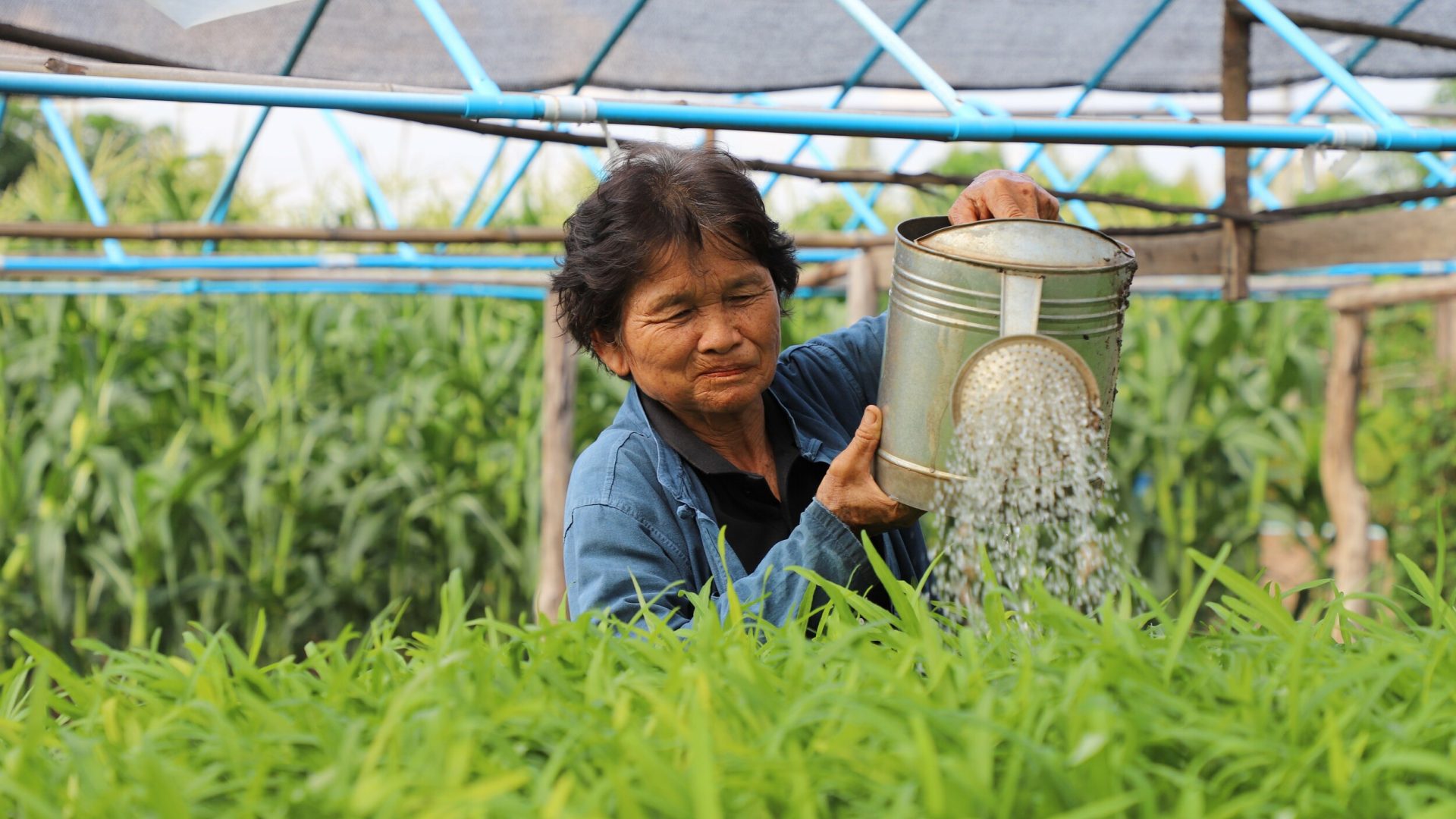As we mark the International Day of Climate Action on 24 October 2024, I find myself reflecting on older people at the frontlines of climate action. This statement challenges a lot of assumptions. Often, when we think of those leading the fight against climate change, our minds turn to young activists, tech innovators, or policymakers. But a deeper, often overlooked truth is that older people are not only witnesses to the changing climate but are active, vital participants in addressing it.
I’m reminded of countless stories that highlight this. Picture a small community in Thailand, where older farmers lead the charge in sustainable farming, or in Switzerland, where a group of older women took their government to court—and won—to demand stronger climate action. These are not isolated examples; they represent a growing movement that challenges stereotypes and celebrates the power of experience and resilience.
The wisdom in grassroots action
Older people have lived through change. They’ve witnessed, firsthand, the shifting seasons, disappearing water sources, and the ebb and flow of natural disasters that have become more frequent in recent decades. And it’s not just the wealthy countries that are seeing this. In low- and middle-income countries, where climate change can mean life or death, older people are using their accumulated knowledge to build resilience.
Take, for example, the work of Older Persons Associations (OPAs), a concept pioneered by HelpAge. OPAs aren’t just about social gatherings or support—they’re about action. In Thailand, members of these groups are teaching younger generations how to conserve water, restore soil, and prepare for disasters. This knowledge, passed down from generation to generation, proves that intergenerational collaboration is key to creating sustainable and resilient communities.
This brings to mind a fundamental point: older people are not passive victims of climate change. They are problem solvers, actively shaping their communities’ future.
A historic win for climate justice
One of the most powerful examples of older people leading climate action came earlier this year. In April, the Swiss Senior Women for Climate Protection won a landmark case at the European Court of Human Rights. These women argued that their government had not done enough to prevent climate change, violating their basic human rights. This ruling didn’t just make headlines—it set a global precedent.
It’s remarkable when you think about it: a group of older women taking on their government, and winning, for the sake of future generations. It’s a humbling reminder that age is no barrier to fighting for justice and change. And their victory wasn’t just for themselves; it was for all of us. The case has already inspired others, including in India, where the Supreme Court recently linked the protection of forests with the protection of human rights, using the Swiss decision as a guide.
What this shows is the tremendous power of local action. And that brings me back to the fact that older people are indeed at the frontline, whether they’re restoring ecosystems or holding governments accountable.
Corporate sustainability and the role of older generations
The business world is also beginning to take note of the vital role older people play in addressing the climate crisis. Sustainability is no longer an option for businesses; it’s a necessity. But here’s where the knowledge and experience of older people become invaluable.
Older workers, with their long-term thinking and resource management skills, can help companies create more sustainable strategies. Their perspective—shaped by decades of experience—brings a unique ability to see the bigger picture, to anticipate risks, and to use resources wisely. In many ways, they are perfectly positioned to guide businesses toward more responsible, environmentally friendly practices.
It’s encouraging to see more companies waking up to this. And for those that haven’t, it’s time. The environment is a shared responsibility, and older people have much to offer in ensuring that corporate sustainability is not just a buzzword but a lasting commitment.
A call for all generations to join the fight
As we face the growing challenges of climate change, there’s one thing we must keep in mind: this is not a battle any one generation can fight alone. Younger people bring fresh energy, new ideas, and innovation, while older people bring wisdom, patience, and resilience. When these forces come together, they are unstoppable.
We’ve seen it in local communities, like those in Thailand. We’ve seen it in international courts, where older women have taken a stand for climate justice. And we’ve seen it in the business world, where older workers can help shape sustainable practices.
The challenges ahead are daunting, but the solution is within reach. It requires all of us—young and old—to work together. As we look ahead to the next few decades, let’s commit to making sure older people’s voices are heard, and let’s embrace the power of intergenerational collaboration to tackle the most pressing crisis of our time.
Read more on how HelpAge confronts climate change in its work.

